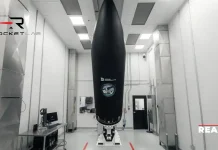Phagenesis Ltd, announced that the U.S. Food and Drug Administration (FDA) has granted a De Novo request for the Phagenyx Neurostimulation System, a first-of-its-kind therapy that uses pharyngeal electrical stimulation to restore swallowing control in patients with severe dysphagia post stroke. The company is now preparing a targeted launch in the U.S.
Dysphagia is defined broadly as difficulty swallowing and when it occurs from a disruption of the neurological systems, it is called neurogenic dysphagia. The most common cause of neurogenic dysphagia is injury to the central nervous system (CNS) due to stroke or traumatic brain injury. Neurogenic dysphagia is also caused by damage to the peripheral nervous system, due to prolonged mechanical ventilation or tracheostomy. In a worst-case scenario, severe dysphagia can result from both CNS injury and prolonged mechanical ventilation or tracheostomy.
Also Read: BIOCORP and Merck KGaA, Darmstadt, Germany, Sign a New Partnership for Smart Drug Delivery
“Dysphagia affects millions of people worldwide and many do not receive the desired outcome with currently available treatments,” commented Marta Kazandjian, MA CCC-SLP BCS-S, F-ASHA and Department Head for Speech Language Pathology and Swallowing Services at Stony Brook Southampton Hospital. “Adding an innovative therapy like Phagenyx has the potential to accelerate results and may allow the patient to spend fewer days in the hospital, which would significantly improve quality of care and patient experience.”
The Phagenyx System treats neurogenic dysphagia using pharyngeal electrical stimulation (PES) targeting the neurological components of swallowing coordination. Phagenyx therapy has demonstrated best results when delivered at the earliest stages after injury to enhance neurorehabilitation and restore swallowing control.
“There is limited awareness of the significance of dysphagia in the critical care setting following prolonged mechanical ventilation or tracheostomy,” says Dr. Wade Smith, Professor of Neurology at the University of California, San Francisco (UCSF). “Such patients cannot manage their own saliva, creating a high risk for aspiration and their safety. Phagenyx has the potential to treat patients early in the ICU which has been shown to accelerate recovery, reduce hospital length of stay and prevent downstream complications.”




